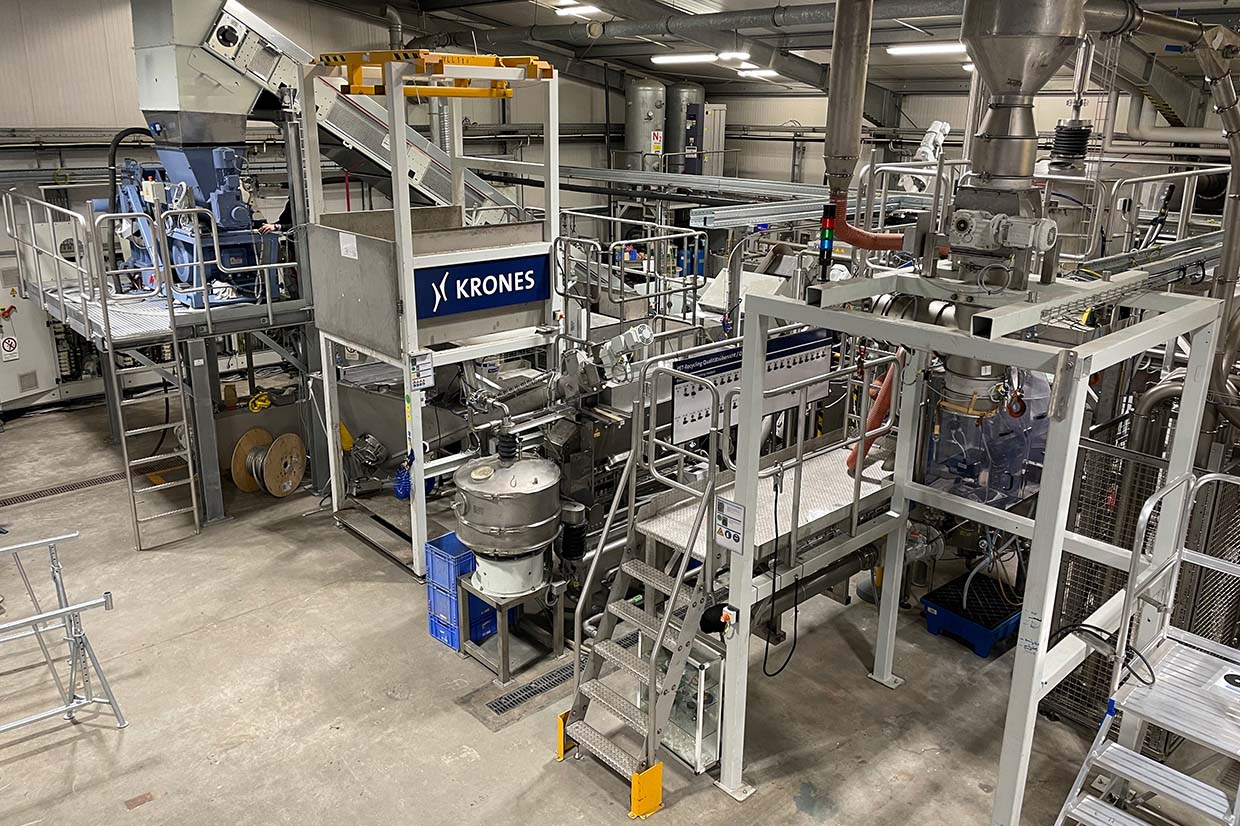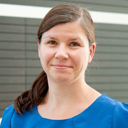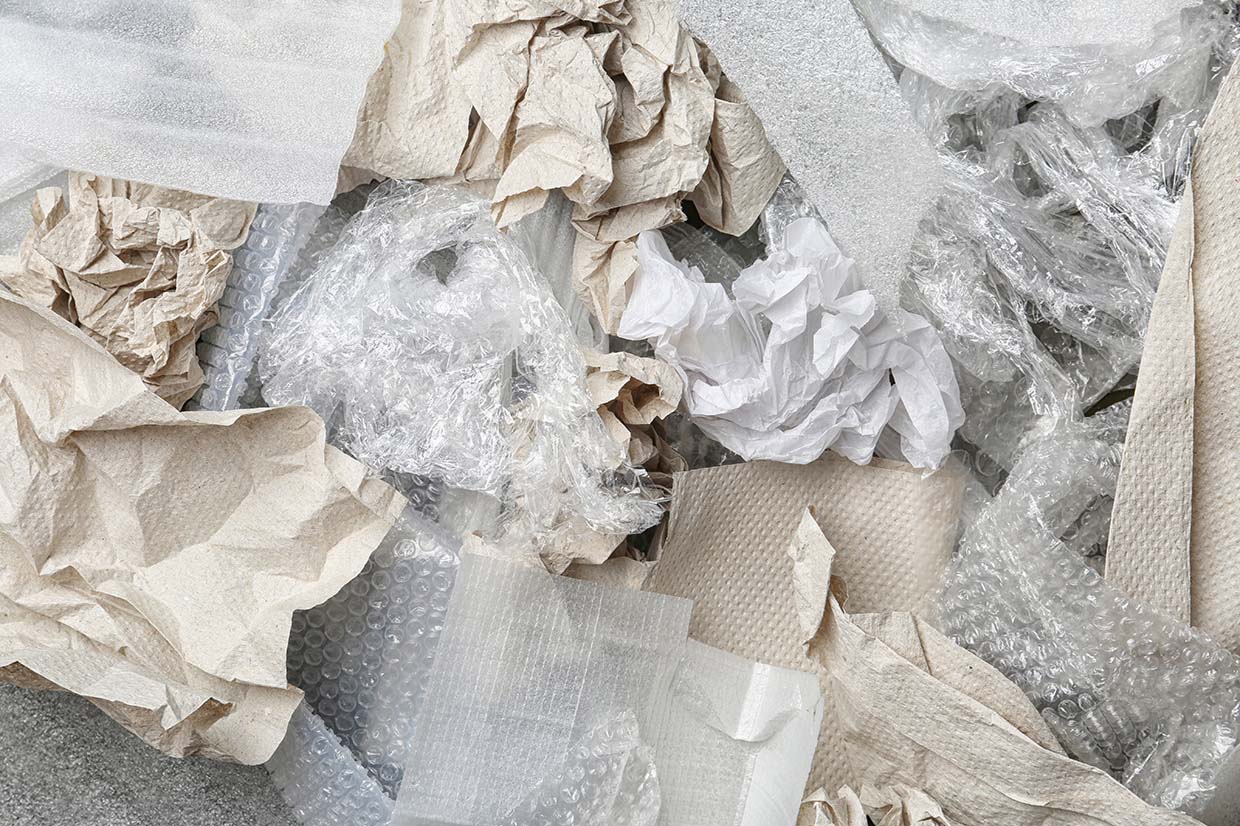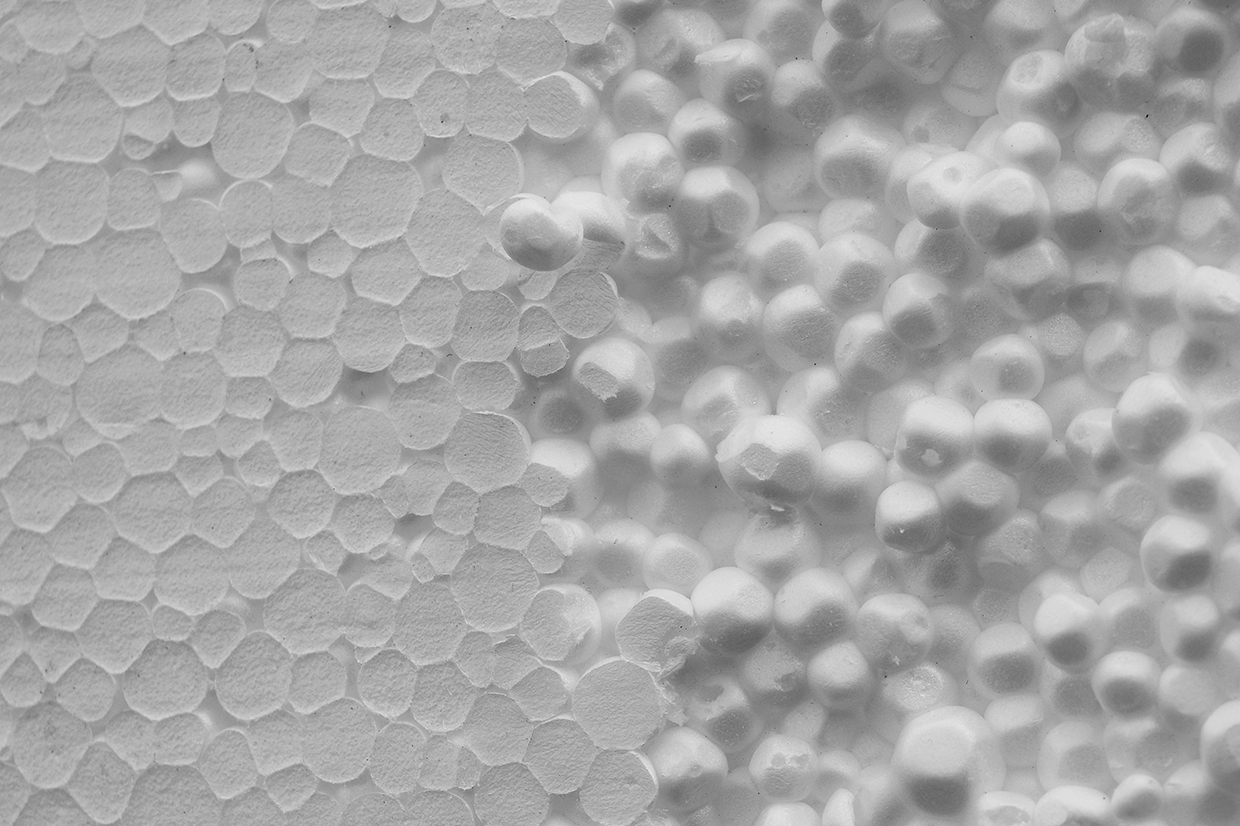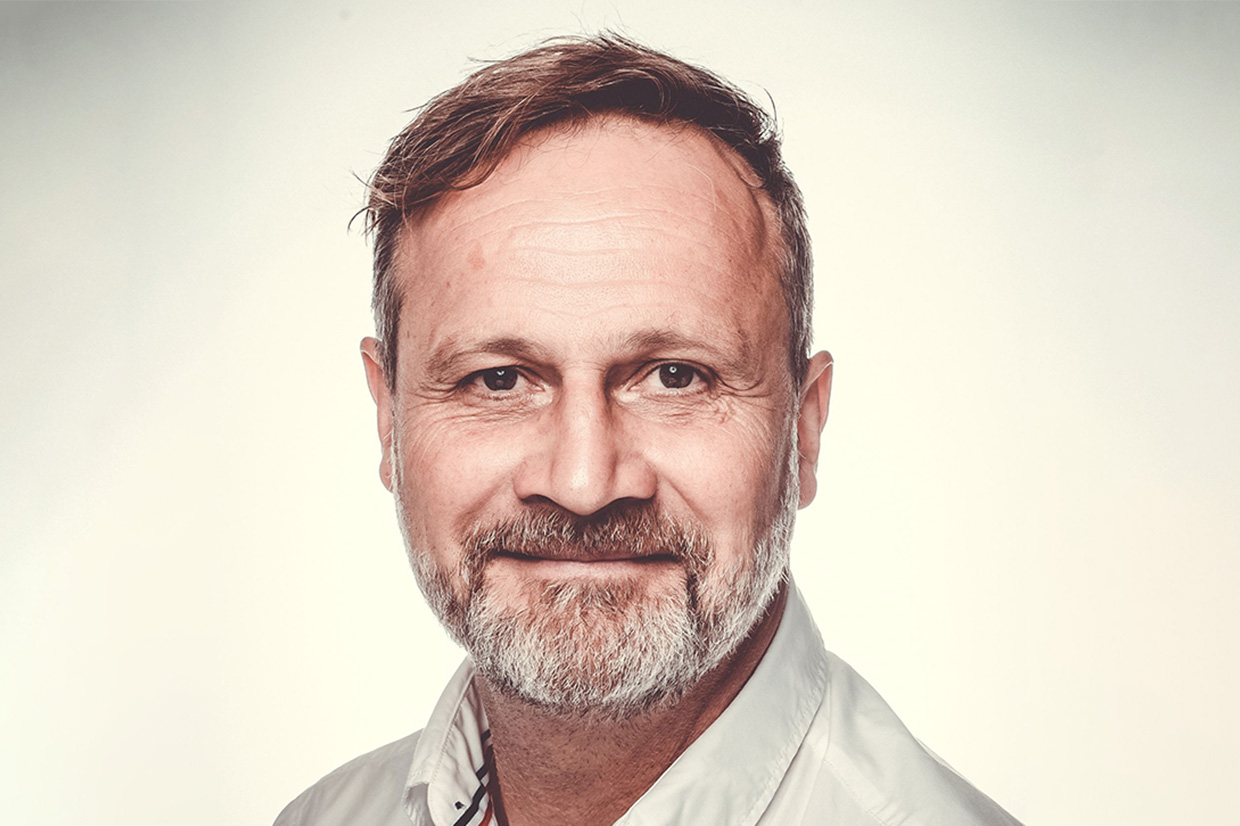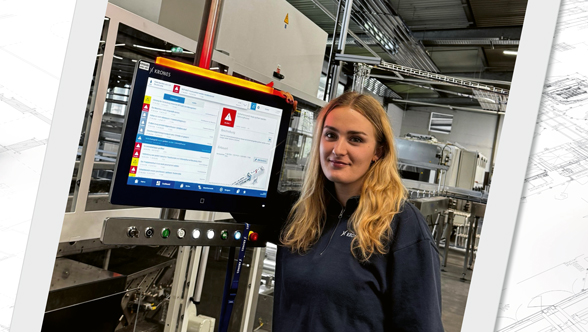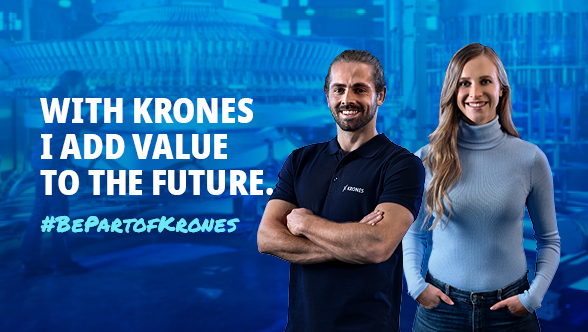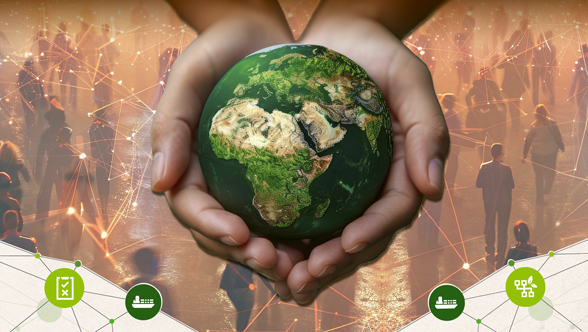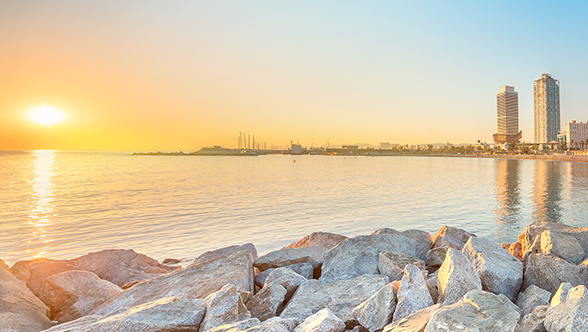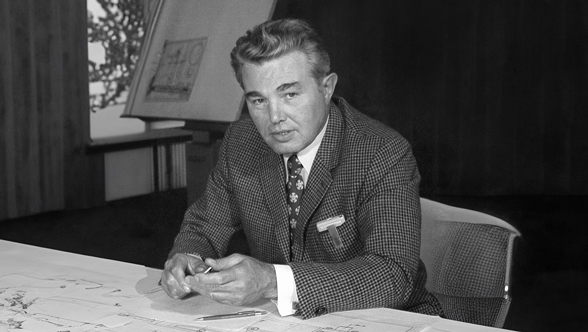Here’s how it works
The material is delivered in bales. Before the actual recycling process begins, these are opened and sorted manually. The material is then taken on several conveyor belts over the universal metal separator to the shredding module. “Because we work with very differing qualities of material, we opted for a wet operating mode, in other words a shredder with process water circuit,” says Timm Kirchhoff. After the material has been shredded, the process water is separated again via an intensive washer.
The plastic particles then pass through a hopper to the MetaPure W washing module, where they are continuously processed in four successive stages: The pre-wash is followed by the intensive wash, which can be done both hot and cold, then comes the float-sink classification and, finally, the hot post-wash. In the two-stage drying process the remaining residual humidity is eliminated from the material, and the concluding visual inspection takes place. Before being packed in big bags, any remaining metal contaminants are removed in the universal metal separator.
